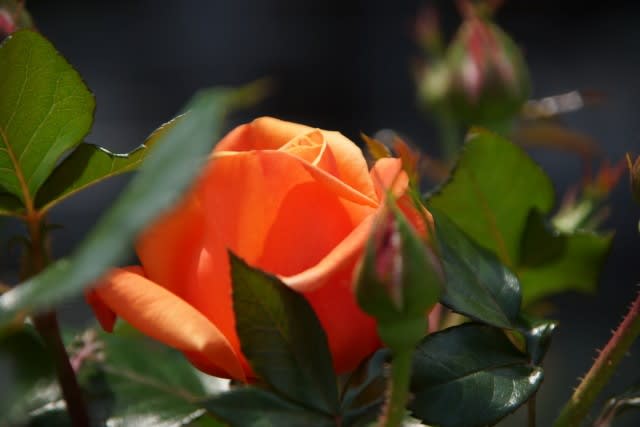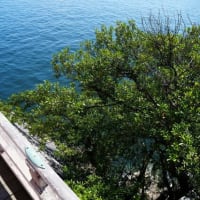It is a re-dissemination of the chapter I sent out on 2018-08-18 titled "My choice, the 'three bad guys' of the postwar liberal bastion, Tetsuya Chikushi, Katsuchi Honda, Toru Hayano, the Asahi Shimbun trio who drove Japan crazy," with revised paragraphs, etc.
The following is from an article by Jiro Kawamura, a former editor of the Asahi Shimbun, which appeared in this month's issue of the monthly magazine Sound Argument (840 yen) under the title "My choice of the three bad guys" in the postwar liberal bastion: Tetsuya Chikushi, Katsuchi Honda, Toru Hayano, and the Asahi Shimbun trio that drove Japan crazy.
The emphasis in the text, except for the headline, is mine.
In my opinion, what made postwar Japan go wrong was, first, the Japan Socialist Party, second, the Japan Teachers Union, and third, the Asahi Shimbun, which supported these two parties.
The biggest crime of the Socialist Party of Japan is its irresponsible and out-of-date insistence on demilitarized neutrality.
It should forget that this claim has turned Japan into a PEACE IDIOT.
The media should have reported that Switzerland, a neutral country, has a conscription system and that the whole country is protecting its security like hedgehogs.
The Asahi Shimbun should also be held accountable for its advocacy of overall peace when Japan concluded the San Francisco Peace Treaty.
When the U.S. and the Soviet Union were in a state of the cold war if Japan had made unrealistic claims such as "overall peace," how long would Japan's independence have been possible?
It is in all likelihood a wise saying when Prime Minister Shigeru Yoshida called a Tokyo University professor who supported the Japanese Socialist Party's argument "a man of twisting the truth and truckling to the times."
I should mention that when the DPJ came to power and political scientists applauded, the phrase "twisting the truth and truckling to the people of the times" came to my mind.
The crime of the Japan Teachers Union is that it called itself a "worker" while taking on the noble mission of teaching.
Parents entrust their children's education to school teachers because they believe that those who work in the teaching profession have the pride of a priest.
They do not entrust the future of their children to mere laborers.
It is because the future of my child is the future of this country.
And no one can deny the fact that the Asahi Shimbun supported the irresponsible Japan Socialist Party and the Japan Teachers Union on its pages.
No one can deny the fact that Asahi supported the irresponsible Japan Socialist Party and the Nichiren Shoshu.
It was not until I became deputy editor of "Weekly Asahi" about 20 years after becoming a reporter at Asahi Shimbun that I began to think this way.
It was said within the company that "Asahi Shimbun is a newspaper of stated reason (superficial), while Weekly Asahi is a newspaper of real intention."
In other words, the newspaper is OK with high-sounding talk, but the weekly magazine is not.
In other words, a newspaper can report events with a simple dualism of good and evil.
A weekly magazine, however, must be multidimensional, or it will lose its commercial value.
For me, the weekly magazines were more agreeable.
When I was five years old, I heard the Jewel Voice Broadcast in Shimoda, Izu, where I was evacuated.
All I can remember is that I couldn't understand what it meant because of the horrible noise and that my mother had been happily turning on the lights in our room since that night.
When I was in the fourth year of elementary school, I moved back from Shimoda to Kugenuma, Shonan.
The UN troops were being pushed around by the North Korean and Chinese volunteer forces during the Korean War.
At Tsujido Beach, a cove about 15 minutes by bicycle from our house, the U.S. military was repeatedly conducting landing maneuvers.
It was not until later that General MacArthur's successful landing at Inchon and the UN forces pushed back the communist forces.
I learned the names of Prosecutor Keenan and Judge Pal from the two volumes of "Judging the Tokyo Trials," which I found on my bookshelf at home.
At the same time, I learned that a country that wins a war could do whatever it wants to the country that loses and that a war that loses should not be fought.
In a fight or a war, you have to win.
At that time, the Japan Teachers Union was strong in Kanagawa Prefecture.
My father, who was born in the Meiji era (1868-1912) and hated the Communist Party from the bottom of his heart, disliked classroom teachers who were enthusiastic about union activities.
It was at a time when the Japan Teachers Union's so-called "Workers' Review" struggle against work agreements was in full swing.
The homeroom teacher seemed to be busy with his activities, and many days he had to study by himself.
The next day after the self-study, the homeroom teacher would come to the classroom, cover me up, put his face close to mine, and ask me if anything unusual about yesterday.
His breath reeked of alcohol, and I almost stopped breathing.
My dislike of the Japan Teachers Union began with the smell of alcohol on his breath.
The Japan Teachers Union was strong in Fukuoka, where I was assigned after becoming a reporter for Asahi.
The elections for mayor often turned out to be a battle between the conservatives and the lefties.
Still, the arguments of the list of left-wing political parties were very different from those of the leftist Socialist Party that I had heard as a child.
The Asahi Shimbun, which likes to pretend to be on the "side of the weak," continued to support the list of left-wing political parties, as usual, or not.
However, as I have been a non-political person since my school days, I was not influenced by it.
This article continues.


















